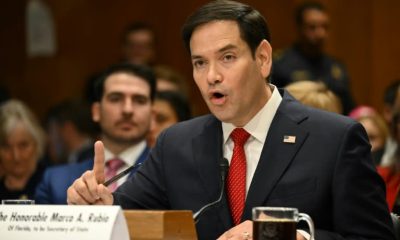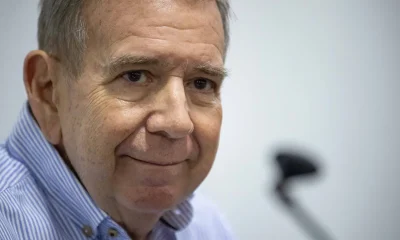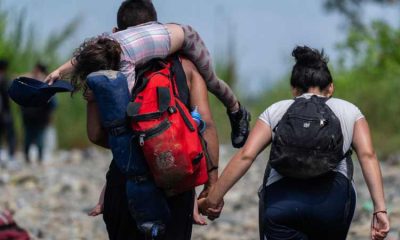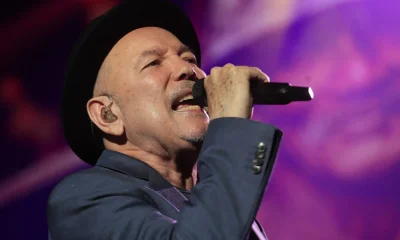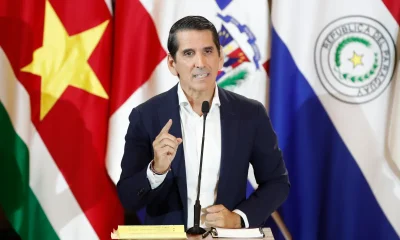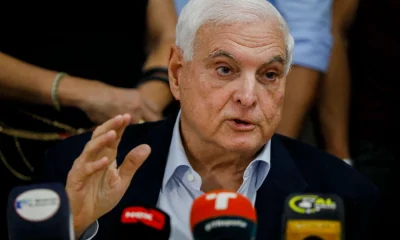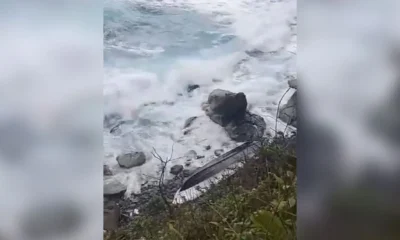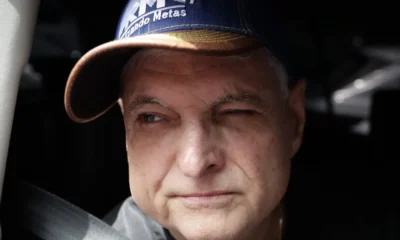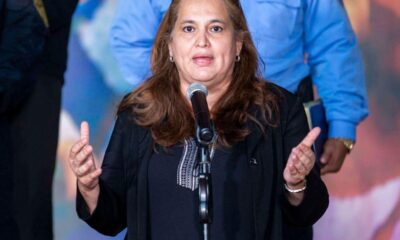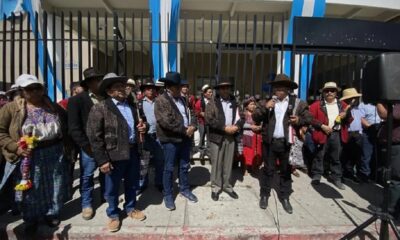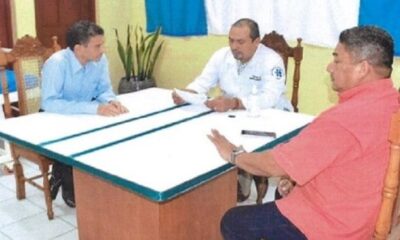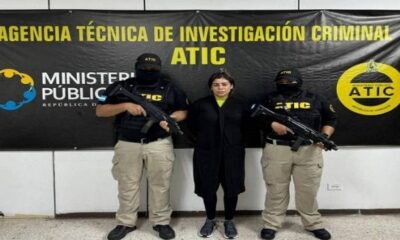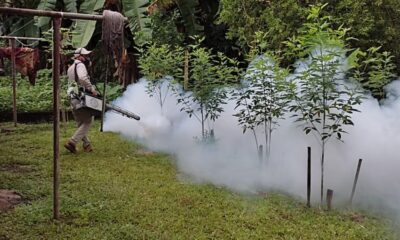Central America
Central America’s biggest mine faces closure over tax spat
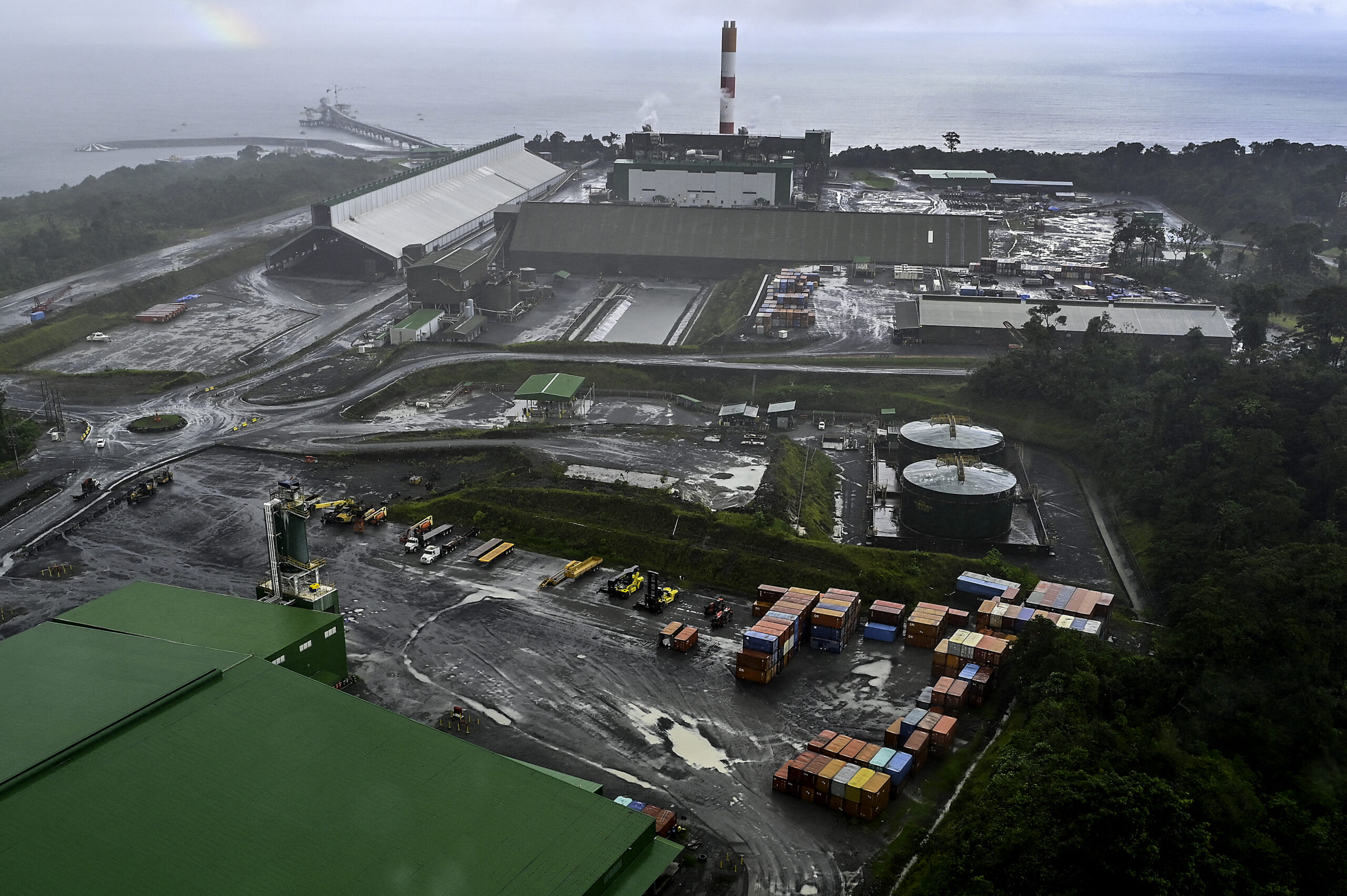
| By AFP | Francisco Jara |
Rising up through the lush vegetation of Panama’s Caribbean coast, a 125-meter chimney serves as a beacon for helicopters approaching the largest mine in Central America, which faces closure next week over a contract dispute.
Gigantic 400-tonne trucks slowly wind around the stepped slopes of a massive gash in the earth one kilometer wide, the ochre and grey of the copper mine standing in stark contrast to the verdant jungle surrounding it.
The activity could grind to an expensive halt in a matter of days.
Canadian mining giant First Quantum Minerals has until next Wednesday to sign a new contract with the government, which is demanding the company multiply the taxes it pays by 10.
If the parties do not agree, the disagreement could halt the work of a mining project considered the largest private investment in Panama’s history, contributing four percent of the country’s GDP and 75 percent of export revenues.
“We have been given a deadline to sign the new contract by December 14, to accept the new terms,” First Quantum’s manager in Panama, Keith Green, who is Scottish, told AFP.
“We intend to reach an agreement, but negotiations are a bit deadlocked,” he added.
First Quantum, one of the largest copper miners in the world, began commercial copper production at the site in Donoso in 2019, through its subsidiary Minera Panama.
It has spent $10 billion on earthworks, construction buildings to house more than 7,000 employees, the purchase of heavy machinery, a power plant, a port for deep-draft merchant ships, access roads, and re-forestation plans.
‘Fair income’
President Laurentino Cortizo in January announced plans to toughen the conditions of the mining license, with a new contract that would oblige the mining company to pay “at least” $375 million to Panama annually — ten times what it is currently paying.
“Panama has the inalienable right to receive fair income from the extraction of its mineral resources, because the copper is Panamanian,” he said.
This mine is “the biggest in Central America,” producing 300,000 tons of copper concentrate per year, said Green.
The deposit, discovered in 1968, lies on the Caribbean coast, 240 kilometers by road from the capital Panama City.
The company, listed on the Toronto Stock Exchange, built the Punta Rincon International Port next to the mine to transport the copper by ship, due to a lack of roads connecting the Colon port, 40 kilometers (25 miles) away.
Despite the uncertainty over the mine’s future, activity has not slowed and the company has continued to invest in the site.
A new 200-tonne drilling rig — as tall as a three-story building — was inaugurated in a ceremony on Tuesday, causing heavy air traffic.
Helicopter pilot Oldemar Arauz explains that most officials visiting the mine prefer the one-hour air trip to the four-hour drive on a narrow road from the capital.
The drilling rig, made in the United States by the Swedish company Epiroc, cost $6 million, and was transported to the mine in 10 trucks.
“Latin America has 200 of these drills, 50 in Chile and now three in Panama,” said Epiroc’s Latin America manager Hans Traub.
The drill was assembled by Chilean engineer Alex Gonzalez, who previously worked in Chuquicamata, the world’s largest open pit copper mine, situated in the Atacama desert, which has been operating since 1915.
Central America does not have the same mining tradition seen further south. Mining is illegal in Costa Rica and El Salvador, and while there is much potential for growth in Panama, the industry’s future is now hanging in the balance.
Central America
Guatemala Police Arrest Prison Guard Caught in the Act of Extortion
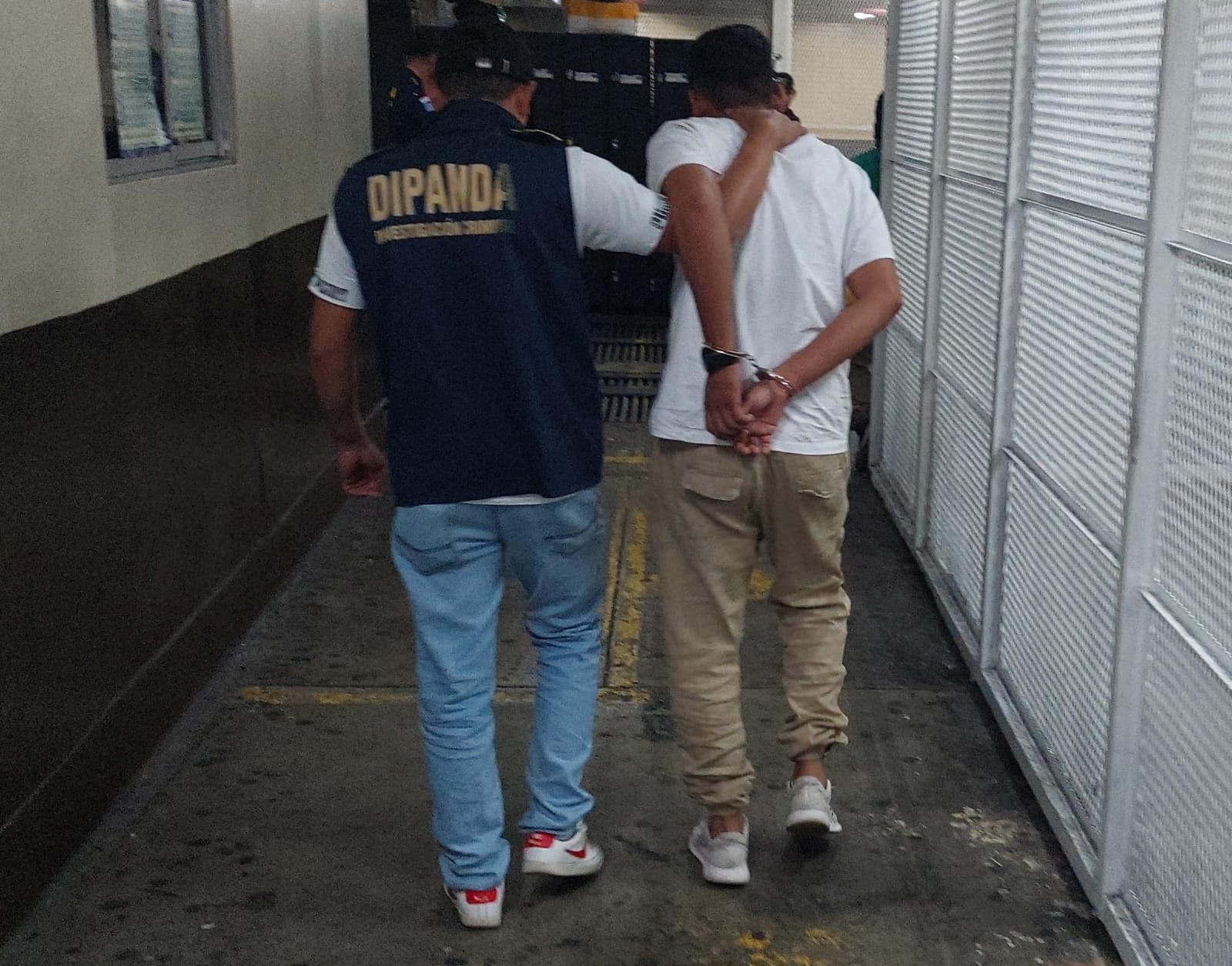
Guatemala’s National Civil Police (PNC) arrested a suspected extortionist in the act during an operation carried out in the department of Quiché, authorities reported.
According to the police report, the arrest took place in Zone 1 of Santa Cruz del Quiché after officers responded to a citizen complaint. Agents from Precinct 71 identified the suspect as Encarnación “N”, 41, who was serving as a guard in the Guatemalan Penitentiary System.
The suspect was caught while attempting to collect a package simulating an extortion payment totaling 25,000 quetzales. Police intervened at the precise moment the money was being handed over, allowing authorities to document the crime in flagrante delicto.
Following the operation, the detainee was placed at the disposal of the competent courts to face criminal proceedings.
The PNC emphasized that such operations aim to dismantle criminal structures involved in extortion, regardless of whether those implicated are linked to state institutions, and urged the public to continue reporting these crimes through confidential channels.
Central America
Honduras swears in conservative president Asfura after disputed election

Conservative politician Nasry Asfura assumed the presidency of Honduras on Tuesday with an agenda closely aligned with the United States, a shift that could strain the country’s relationship with China as he seeks to confront the economic and security challenges facing the poorest and most violent nation in Central America.
Asfura’s rise to power, backed by U.S. President Donald Trump, marks the end of four years of left-wing rule and secures Trump another regional ally amid the advance of conservative governments in Chile, Bolivia, Peru, and Argentina.
The 67-year-old former mayor and construction businessman was sworn in during an austere ceremony at the National Congress, following a tightly contested election marred by opposition allegations of fraud and Trump’s threat to cut U.S. aid if his preferred candidate did not prevail.
Grateful for Washington’s support, Asfura—who is of Palestinian descent—traveled to the United States to meet with Secretary of State Marco Rubio, before visiting Israeli Prime Minister Benjamin Netanyahu.
“We need to strengthen relations with our most important trading partner,” Asfura said after being declared the winner of the November 30 election by a narrow margin, following a tense vote count that lasted just over three weeks.
Central America
Bukele leads public trust rankings as UCA survey highlights gains in security
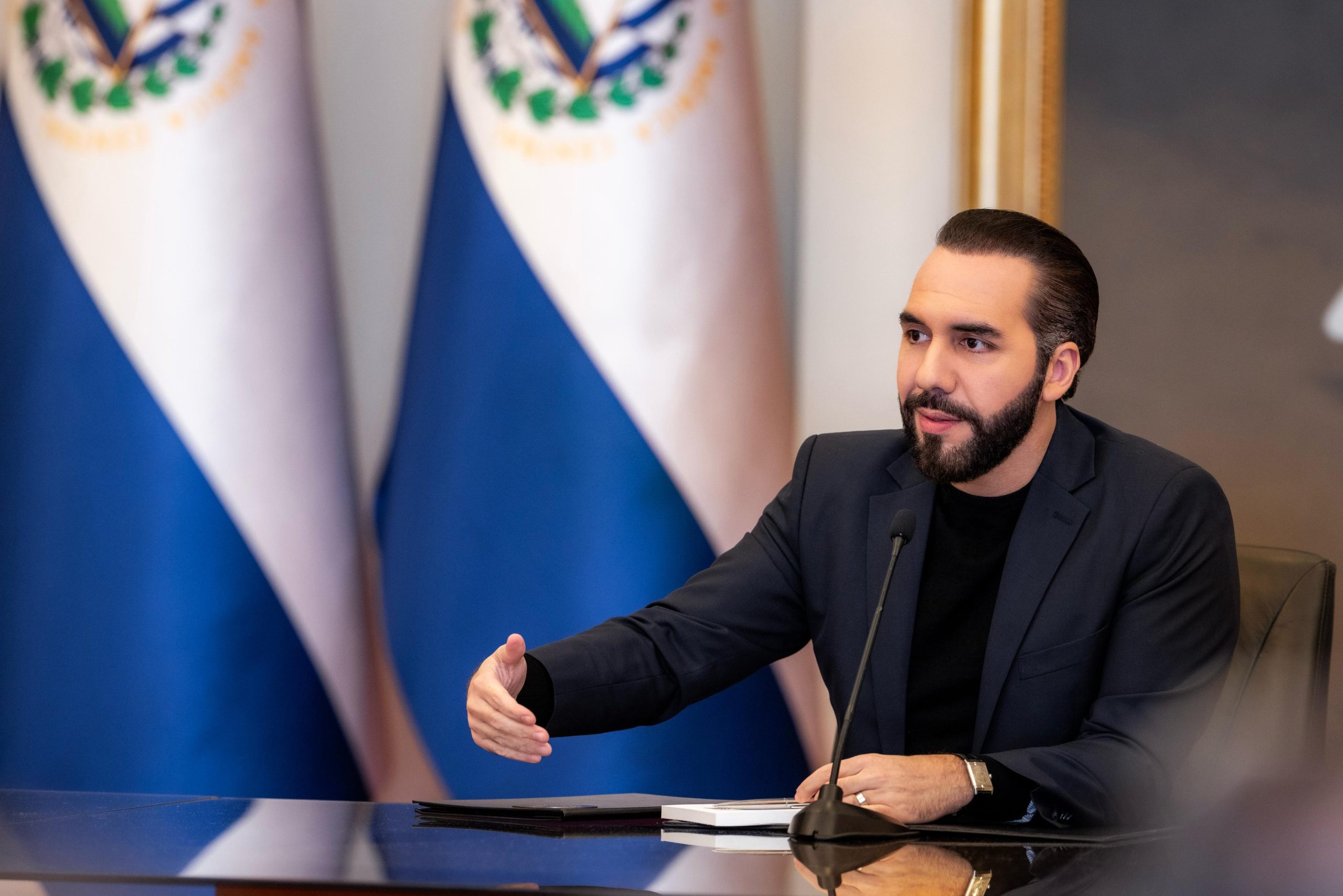
Results from the UCA Survey, conducted by the José Simeón Cañas Central American University (UCA), were presented on Tuesday, offering an assessment of the performance of the Government of El Salvador during 2025 and measuring public perception on key issues such as security and the economy.
According to the survey, President Nayib Bukele received an average score of 8.39 for his performance in 2025. In the category measuring levels of trust in national institutions and social actors, Bukele led the ranking with 77% public confidence, surpassing the Central Government (69.6%), the Armed Forces (69.1%), the National Civil Police (PNC), and the Catholic Church (58.4%), among others.
The survey also highlights an upward trend in the president’s evaluation. While Bukele scored 8.15 for his performance in 2024, the most recent assessment of his sixth year in office showed an increase to 8.39.
Meanwhile, the Government of El Salvador as a whole was rated 8.33 for its performance during 2025.
Respondents identified public security as the area showing the greatest progress in the country, with 62.7% recognizing improvements in this sector, according to the UCA survey released on Tuesday.
-

 Central America2 days ago
Central America2 days agoGuatemala seizes over a ton of cocaine hidden in flour at Pacific port
-

 Central America4 days ago
Central America4 days agoGuatemala’s president rules out negotiations with inmates after prison riots
-

 International4 days ago
International4 days agoTrump-Era Defense Plan Prioritizes Border Security and Scales Back Global Commitments
-

 Internacionales4 days ago
Internacionales4 days agoMajor winter storm threatens “catastrophic” ice and snow across much of the U.S.
-

 International4 days ago
International4 days agoBogotá and Quito Seek Dialogue After Tariffs and Power Cut Escalate Tensions
-

 International3 days ago
International3 days agoDelcy Rodríguez seeks political agreements after Maduro’s ouster
-

 International4 days ago
International4 days agoGuatemala considers sending high-risk gang members to military prisons
-

 International2 days ago
International2 days agoHistoric snowstorm paralyzes Toronto after 60 centimeters of snow
-

 International2 days ago
International2 days agoSpain’s irregular migrant population rises to 840,000, study finds
-

 International3 days ago
International3 days agoFederal immigration agents kill man in Minneapolis, sparking protests and outrage
-

 Central America12 hours ago
Central America12 hours agoGuatemala Police Arrest Prison Guard Caught in the Act of Extortion
-

 International4 days ago
International4 days agoRights group says over 5,000 killed in Iran protests, mostly civilians
-

 International12 hours ago
International12 hours agoWinter Storm Fern Leaves 30 Dead and Over One Million Without Power Across the U.S.
-

 International13 hours ago
International13 hours agoDoomsday clock moves to 85 seconds before midnight amid rising global risks
-

 International2 days ago
International2 days agoRights group says nearly 6,000 killed in Iran protest crackdown
-

 Central America13 hours ago
Central America13 hours agoHonduras swears in conservative president Asfura after disputed election
-

 Sin categoría12 hours ago
Sin categoría12 hours agoEight Killed in Series of Armed Attacks in Ecuador’s Manabí Province
-

 Central America13 hours ago
Central America13 hours agoBukele leads public trust rankings as UCA survey highlights gains in security
-

 International2 days ago
International2 days agoVenezuela frees at least 80 political prisoners, NGO says
-

 International12 hours ago
International12 hours agoSpain approves plan to regularize up to 500,000 migrants in Historic Shift
-

 International2 days ago
International2 days agoEU launches new probe into X over AI-generated fake nude images
-

 Sin categoría12 hours ago
Sin categoría12 hours agoEl Salvador Launches Fourth Year of Ocean Mission to Protect Marine Ecosystems
-

 International2 days ago
International2 days agoSevere winter storm grips U.S., leaves multiple dead as extreme cold persists
-

 International2 days ago
International2 days agoFrance debates ban on social media for children under 15



























